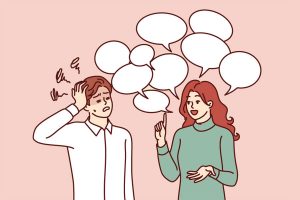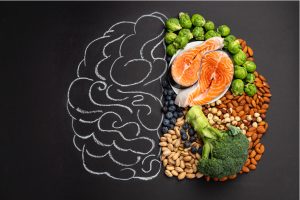The 9 Lesser Known Symptoms of Depression

The Priory’s consultant psychiatrist Dr Syed Omair Ahmed explains why depression can manifest in different ways and the importance of being able to recognise all signs and symptoms of the mental health condition even the ones you might not expect.
How common is depression?
Depression is a lot more common than people think. It will affect approximately one in four people each year in the UK. Globally, the World Health Organisation estimates that almost 265 million people suffer from this disorder and that it is one of the most prominent causes of disability worldwide.
How can people tell the difference between being sad or being clinically depressed?
Sadness is considered a normal reaction to various life events experienced by most people. This could include loss, bereavement, employment issues and financial difficulties to name a few. The vast majority of people adjust to these events without any formal intervention and resume normal daily activities.
Sometimes, these feelings of sadness become prolonged and people struggle to recover. This affects their mood significantly, their energy levels and general interest in everyday activities. They may present with strong negative cognitions including thoughts of self-harm or even psychosis. This is now classified as a mental illness and requires medical or psychological treatment.
How difficult is it to diagnose?
This can vary on the type and intensity of symptoms. Family members may notice that something is wrong at first, and try and provide support themselves.
Some of the symptoms are very subtle and can easily be missed by people. It requires a formal assessment by a suitable trained professional such as a psychiatrist, GP or psychologist. Many people suffering with this illness quite often try to mask their symptoms and ‘put on a brave face’. This also makes it difficult to diagnose. In some communities, mental illness carries great stigma and this makes people more reluctant to seek professional help.
What are the most common signs that somebody is suffering from depression?
Typically, an individual will present with low mood that seems to persist. Lethargy and loss of interest in daily activities may be present. Concentration and memory can be affected. Sleep and appetite are often disrupted. Strong feelings of guilt and thoughts of self-harm can arise. In serious cases, people may develop symptoms of psychosis.
Many people suffering with this illness quite often try to mask their symptoms and ‘put on a brave face’.
How many of the symptoms of depression should you have before questioning if you have a problem?
Generally, if the symptoms persist for more than a fortnight without reprieve, one ought to seek further help. It is not important how many of the symptoms you have, but more so how the symptoms are impacting on your day-to-day life. People have differing levels of resilience and therefore one scale cannot be applied generically to every individual. This is where robust clinical assessment is vital.
What can we do if we feel we’re slipping towards depression?
Friends and family are quite often the first port of call. This close support network can be invaluable. Many mental health charities exist such as MIND, who can also provide good advice. Naturally, the GP is the first avenue for a lot of people when looking to seek formal help. They may recommend medication or psychological treatment. If appropriate, they may refer you to see a Consultant Psychiatrist.
What are the best ways to stay mentally healthy?
There are several practical steps people can take to stay mentally healthy. These include:
- Ensuring that you have good social support
- Participating in physical exercise
- Having a good diet
- Avoiding excessive alcohol and staying away from illicit substances
- Learning how to manage your own stress and pace yourself during the day
- Being mindful when you are struggling and not being afraid to ask for help
You believe it’s important for us all to have an understanding of all the potential symptoms of depression. What are the less common symptoms?
When a person is aware of the different symptoms of depression, it puts them in a better position to access treatment faster. When depression is left untreated, a person’s symptoms can worsen and significant health issues can arise.
Common physical health issues include malnutrition, obesity, heart disease and diabetes. A lack of mobility caused by depression can also cause blood clots to form on the lungs or in the legs. A person may also start to use alcohol or drugs to self-manage symptoms, which can lead to further problems.
Here are some of the the lesser known symptoms of depression and the reasons why they can occur to help increase people’s awareness:
- Finding it difficult to make decisions – depression can cause certain areas of the brain to decrease in volume and can also disrupt normal ‘electrical connections’. This causes a person’s focus and concentration to diminish, making it difficult for them to make decisions. Depression also leads to sleep disruption and lethargy. This lack of energy can affect a person’s decision-making abilities.
- Changes in appetite or weight– depression can cause changes in our metabolic systems, leading to an increased or decreased appetite. When a person has lower energy levels, they may also be less motivated to prepare food. Conversely, some people may ‘comfort’ eat as a coping mechanism.
- Having difficulties in your home, work or family life – the loss of sleep caused by depression can result in a person becoming irritable, which can impact on those they are close to. A person may also withdraw from others, which can affect relationships. Problems with focus and concentration may also cause work performance to decline, and lead to a demotion or job loss. If a person resorts to self-medicating with alcohol or drugs, this can again exacerbate difficulties at home, work or within the family.
- Low sex drive – people with depression can experience a loss of desire and can experience delayed orgasm. A person’s sexual arousal depends on their ability to experience pleasure. If this is missing due to depression, this will lower their sex drive. Low energy levels and low self-esteem will also contribute to this picture.
- Feeling guilt-ridden – people with depression can struggle to achieve perspective on negative life events. This can make them feel wholly responsible for them, making them feel guilty.
- Moving or speaking more slowly than usual – the slowing of both thought processes and physical movements is a well-established symptom of severe depression. Partly due to decreased energy levels, it is also known that certain chemical and structural changes in the brain can cause this.
- Unexplained aches and pains – people with depression often present with various body ailments including pain. While quite often, there will be no underlying physical cause, the pain and distress is very real. In depression, as emotions are not processed properly, people tend to focus on any physical symptoms they experience rather than underlying emotional problems.
- Changes to your menstrual cycle – during a depressive phase, a hormone called cortisol rises. This sends messages to the brain and the reproductive system, delaying or ceasing ovulation, leading to a delayed or absent period.
- Constipation – if a person’s appetite is adversely affected, and their dietary intake is quite poor, they will lack essential nutrients and fibre. This can lead to bowel disturbances including constipation. Low fluid intake can also worsen constipation. Low serotonin levels in depression have also been shown to slow gut movements.
Dr Syed Omair Ahmed works for the Priory Group – a provider of mental health treatment in the UK .








